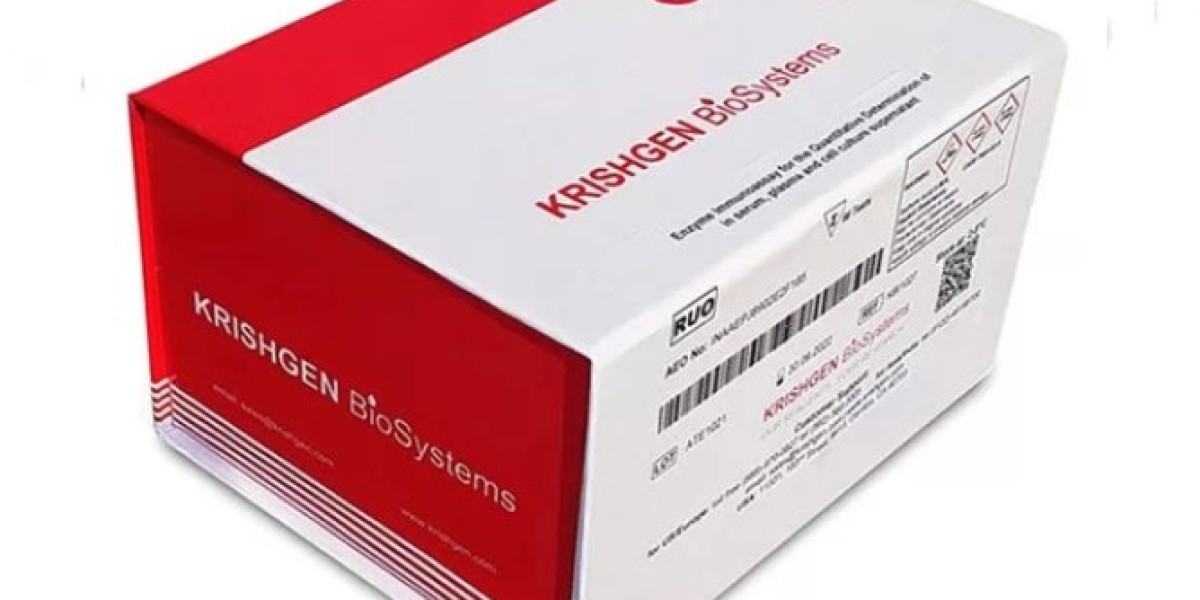Vedolizumab, a monoclonal antibody therapy, has revolutionized the treatment of inflammatory bowel diseases (IBD) such as Crohn’s disease and ulcerative colitis. To ensure the drug's optimal effectiveness, healthcare professionals rely on the Vedolizumab ELISA (Enzyme-Linked Immunosorbent Assay) test. This test measures the levels of vedolizumab in the bloodstream, helping clinicians tailor treatments for better patient outcomes.
What is Vedolizumab?
Vedolizumab is a biologic medication that selectively targets the gut, blocking the α4β7 integrin on white blood cells, preventing them from causing inflammation in the intestines. It is used in the treatment of moderate to severe Crohn’s disease and ulcerative colitis, particularly for patients who haven’t responded to conventional therapies. Because of its targeted mechanism, vedolizumab offers a safer option compared to other systemic immunosuppressants, with fewer side effects.
Importance of Vedolizumab ELISA
The Vedolizumab ELISA test is essential for monitoring drug levels in patients undergoing therapy. This assay provides valuable insights into how much vedolizumab is present in a patient's blood, enabling healthcare providers to optimize dosage and treatment frequency. By ensuring the drug is administered at the right therapeutic levels, clinicians can maximize its efficacy and minimize the risk of relapse or complications.
Key Uses of Vedolizumab ELISA
- Therapeutic Drug Monitoring (TDM): Just as with other biologics, maintaining the appropriate drug concentration is critical for the success of vedolizumab therapy. The Vedolizumab ELISA allows clinicians to measure these levels and make adjustments to the dose or frequency of administration based on the patient’s individual response. Proper monitoring through ELISA ensures that the patient maintains effective drug levels, leading to sustained remission in IBD patients.
- Detection of Anti-Drug Antibodies (ADAs): Some patients may develop anti-drug antibodies (ADAs) against vedolizumab, which can neutralize the drug's action or speed up its clearance from the body. Detecting these ADAs early through the Vedolizumab ELISA test helps identify patients who are losing response to therapy, allowing for a timely switch to alternative treatments if necessary.
- Avoiding Over- or Under-Dosing: Since every patient metabolizes medications differently, drug levels can vary widely. The Vedolizumab ELISA test ensures that patients are neither under-dosed (leading to disease flare-ups) nor over-dosed (increasing the risk of adverse effects). This personalized approach improves the overall safety and effectiveness of the therapy.
Benefits of Vedolizumab ELISA Testing
- Personalized Treatment: The ability to measure individual drug levels allows for a customized treatment plan that is tailored to the patient’s needs. Personalized dosing improves both the efficacy of the treatment and the patient’s quality of life.
- Improved Disease Management: Regular monitoring with the Vedolizumab ELISA ensures that disease control is maintained over the long term, reducing the risk of relapses and hospitalizations associated with IBD.
- Cost-Effective Treatment: By accurately determining the right dosage and minimizing drug waste, ELISA testing can make long-term treatment with vedolizumab more cost-effective for patients.
How the Vedolizumab ELISA Test Works
The Vedolizumab ELISA works by using antibodies that specifically bind to vedolizumab in the blood sample. Once the drug is captured, a detection system is used to generate a colorimetric signal, which is proportional to the concentration of vedolizumab in the sample. This method is both highly specific and sensitive, making it an ideal choice for therapeutic drug monitoring.
Who Should Get Vedolizumab ELISA Testing?
Patients who are on vedolizumab therapy for Crohn’s disease or ulcerative colitis should undergo regular ELISA testing to monitor their drug levels. This is especially important in cases where the patient is not responding as expected to treatment, or where symptoms of the disease return. Testing is also recommended for patients who have been on vedolizumab for extended periods, as drug levels may change over time.
Conclusion
The Vedolizumab ELISA test is a vital tool in the management of inflammatory bowel diseases. By enabling precise therapeutic drug monitoring and early detection of anti-drug antibodies, it helps clinicians tailor treatment plans to each patient’s needs, ensuring optimal outcomes. As a result, this test plays a crucial role in maintaining long-term remission and improving the quality of life for patients living with IBD.








